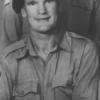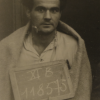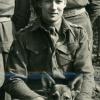Mr Frederick Bellenger , (Secretary of State for War)
With your permission, Mr. Speaker, I propose to reply to these Questions by making the following statement on the mutiny which occurred in the 13th Parachute Battalion on 14th May at Muar Camp, Malaya, at this, the first opportunity, after the re-assembly of the House.
The battalion arrived at Muar Camp from Java on the night of 5th May, and was shortly afterwards joined by a draft of 120 men, 50 straight from this country and 70 who had been away from the battalion for the previous six months due to illness. Muar is a tented camp and conditions were undoubtedly bad, and although it had been previously occupied by another unit from whom this battalion took over, much required to be done to bring it up to a reasonable standard of habitation. It lacked proper facilities for washing, feeding, cooking and recreation and there was not electric light in all tents. There were several reasons for the bad conditions of the camp, the most important of which were that the changeover from the war to the peacetime system of administration was in the transitional stage and a certain failure on the part of the battalion, and advance party in particular, to help themselves. The commanding officer, however, took immediate steps to have these conditions improved after the battalion's arrival, but there was a heavy fall of rain which was quite unexpected and which caused living conditions in the camp to deteriorate considerably.
On the evening of 13th May there was a certain amount of discontent in the canteen and the word "strike" was mentioned. Later the lights were put out and someone asked those present if they were prepared to stick to what had been arranged. At about 7 a.m. on 14th May, about 260 men congregated on the sea wall in a sullen mood, and when ordered to disperse by the orderly officer made no move. They later moved to the canteen and here they were addressed by the commanding officer who told them that they should air their grievances in the proper way, that he could not entertain collective grievances, and that if they refused to return to duty they would be guilty of mutiny. He gave them a direct order to return to their companies. As the men did not respond to this order the commanding officer reported the matter to his superior commander. During the afternoon the divisional commander arrived and addressed the men, who had again assembled on the sea wall. The commanding officer then put out company markers and ordered the men to fall in. They did not do so, and the divisional commander ordered another battalion to take them into custody. None of the officers or N.C.Os. took part in the mutiny, nor had they any previous knowledge that it was going to occur.
Two Courts of Inquiry were assembled on 17th and 22nd May; one to inquire into the causes of the mutiny and the other to inquire into the conditions in Muar Camp. As a result it was decided that all the 258 men concerned must be brought to trial for mutiny. The trial commenced on 12th August and was completed on 19th September. Of the 258 men charged three were acquitted and all the remainder were convicted. Of these, eight were sentenced to 5 years' penal servitude and to be discharged with ignominy. The General to 3 years' penal servitude and to be dis-carged with ignominy. The General Officer Commanding-in-Chief as Confirming Officer did not confirm the proceedings in the case of 12 accused who were accordingly released, and in the remaining 243 cases commuted all the sentences to 2 years' imprisonment with hard labour and to be discharged with ignominy.
There can be no shadow of doubt that these men were rightly charged with mutiny. The law regards mutiny as a most serious military offence and provides death as the maximum penalty. Mutiny may be described as the act of two or more soldiers who join together, whether actively or passively, in resistance to, or disobedience of, lawful authority. The obedience of lawful orders is vital in any fighting Service, and it is obvious that in the Armed Forces any form of resistance to lawful authority, whether active or passive, cannot and will not be tolerated. I am waiting the advice of the Judge Advocate-General on the legality of the proceedings and I will make a further statement when I have received it. The proceedings of the trial arrived in this country only a week ago and it has not yet been possible, owing to their great length, to complete a full review.





Latest Comments
There are currently no comments for this content.
Add Comment
In order to add comments you must be registered with ParaData.
If you are currently a ParaData member please login.
If you are not currently a ParaData member but wish to get involved please register.